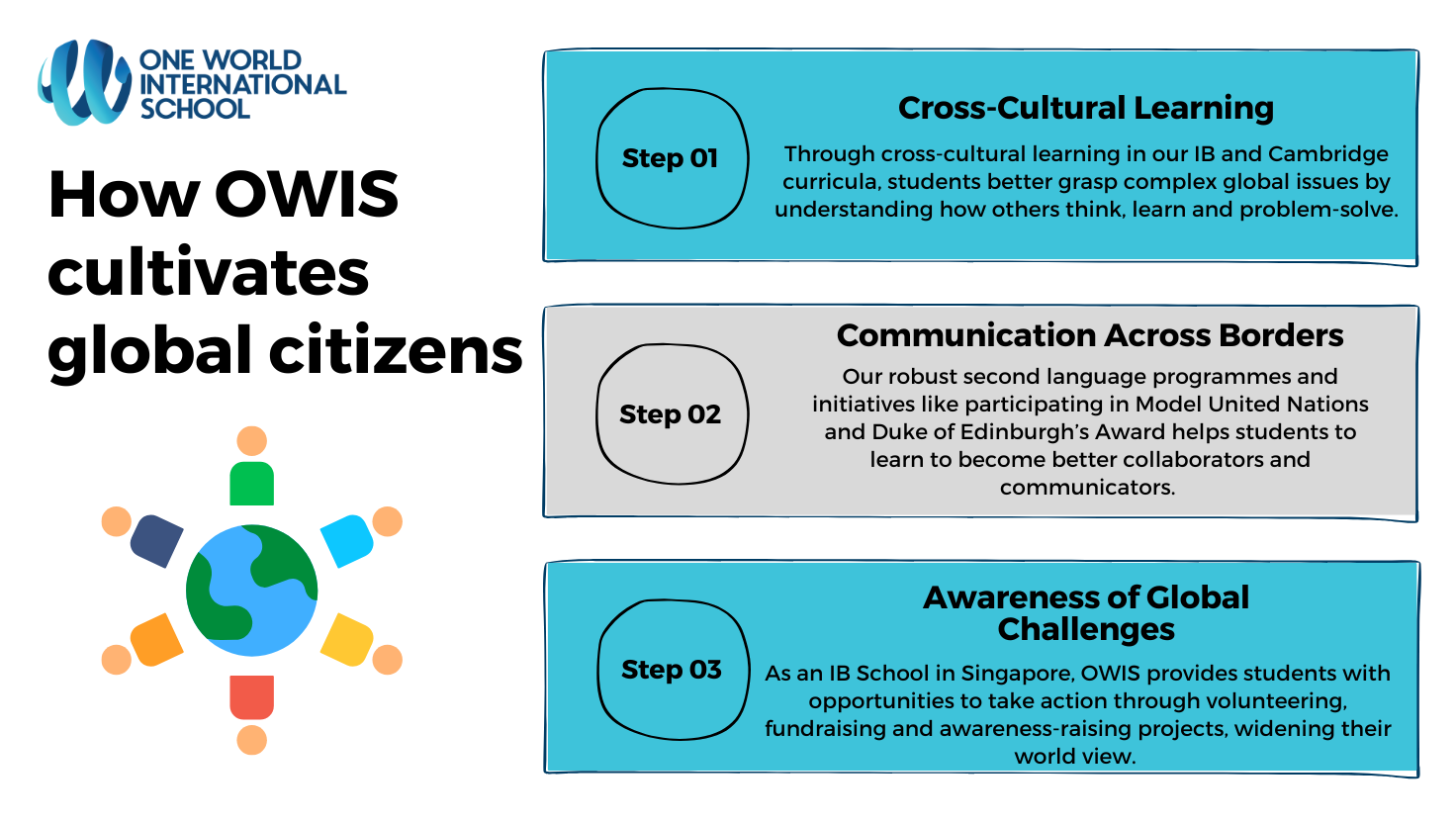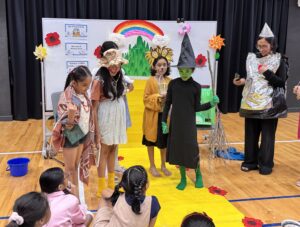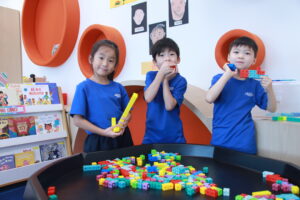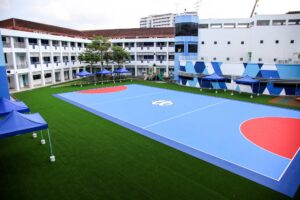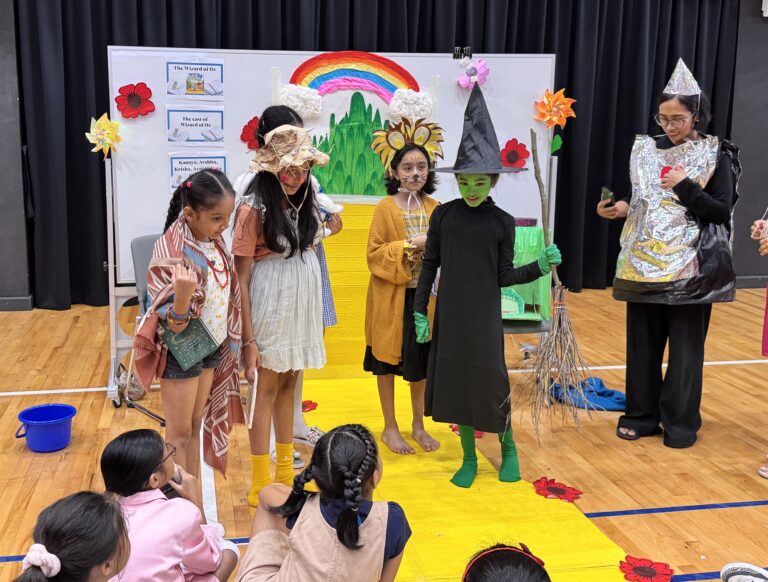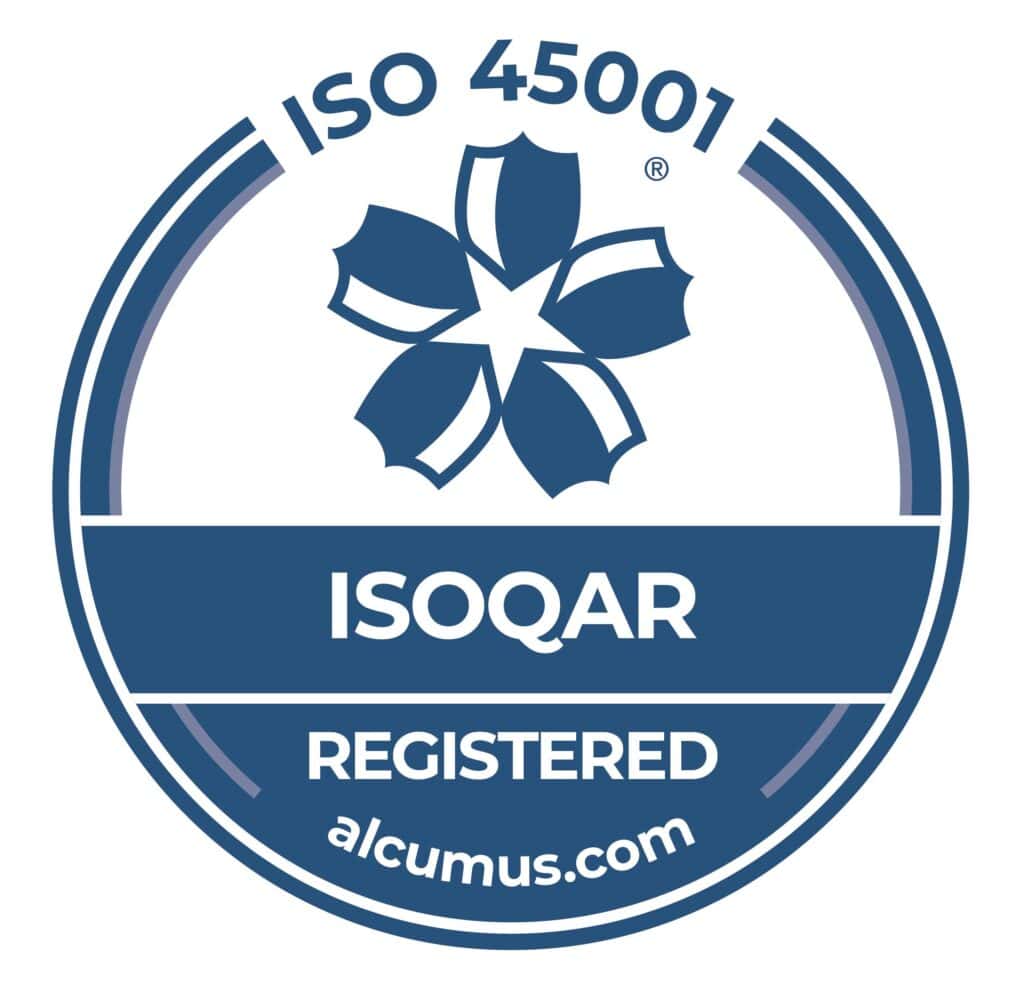“Diversification and globalisation are the keys to the future.” — Fujio Mitarai, CEO of Canon
In recent decades, our world has become increasingly interconnected and has changed how we live, work and socialise. Global citizenship is about recognising those connections, understanding and respecting the importance of all cultures while addressing global challenges faced.
The role of international education is to foster global citizenship, by providing children with the knowledge, skills and experiences to be active and responsible global citizens. At One World International School (OWIS), our unique role allows us to broaden an individual’s perspective, nurturing cross-cultural understanding to prepare young persons for the international workforce.
This is achieved by helping our learners become more empathetic and tolerant, and equipping them with the adaptability, critical thinking and communication skills needed to make them globally aware and responsible citizens.
Why is Global Citizenship Important in the 21st Century
Fostering global citizenship empowers individuals to become future leaders and active agents of change. It equips them with the ability to think critically, analyse information and communicate effectively across cultures, ultimately contributing to a more just and sustainable future.
In today’s interconnected world, global citizenship is especially essential for addressing complex challenges like climate change, inequality and technological advancements, underscoring the need for individuals with understanding, empathy and a commitment to positive change.
- Appreciation for Diverse Cultures
International education allows children to walk a mile in the shoes of those from different backgrounds. This first-hand experience fosters a deeper understanding of the challenges and opportunities that others face.
For example, OWIS exposes students to diverse customs and traditions to foster a global mindset. Through celebrations like Diwali, Chinese New Year and more, students experience different cultures, promoting understanding and appreciation of those around them.
Additionally, experiences like International Day, an event that encourages cultural exchanges and mutual respect, further inspires students to become active and responsible global citizens.
- Critical Thinking and Problem-Solving Skills
Critical thinking skills and problem-solving skills are vital aspects of global citizenship education. They help individuals analyse, evaluate and solve complex world problems. International schools foster these skills by engaging students in activities like debates on sustainability, where they explore diverse perspectives and develop arguments.
OWIS also integrates real-world issues, such as climate change, into its curriculum, encouraging students to analyse data, evaluate solutions and propose innovative approaches. Collaborative problem-solving projects also further challenge students to apply their critical thinking skills in a team setting, simulating real-world scenarios.
- Promotes Tolerance and Inclusivity
Tolerance and inclusivity are essential pillars of global citizenship, fostering a world where individuals from all backgrounds feel respected and valued. To counter stereotypes and prejudices often rooted in ignorance, it’s vital to create learning environments that celebrate diversity and promote understanding.
OWIS actively cultivates inclusivity by encouraging students to explore diverse perspectives and challenge biases through classroom discussions and cultural immersion events and activities. These include celebrating international festivals and learning about different customs, allowing students to understand and embrace the richness of the experiences around them.
Progressive Educational Approaches
Progressive education is an approach to teaching where students actively participate in their learning. It prepares them for a democratic society with an emphasis on global citizenship.
At One World International School, students are exposed to diverse educational systems, teaching methods, curricula and assessment practices. This exposure encourages innovation, and helps them identify what’s the learning approaches that best suit their strengths and weaknesses.
- Cross-Cultural Learning
Through cross-cultural learning in international education, students better grasp complex global issues by understanding how others think, learn and problem-solve. This exposure equips them with the skills and understanding necessary to navigate and thrive in multicultural environments, both personally and professionally.
Additionally, studying alongside peers from diverse countries not only boosts adaptability and creativity when tackling global challenges, but also fosters a sense of belonging. This provides them with the ability to explore different personal values, beliefs and preferences.
- Communication Across Borders
Language is a vital part of global citizenship, promoting understanding and collaboration. OWIS emphasises effective communication, teaching linguistic skills alongside the ability to convey ideas and build relationships across cultures. This is reflected in our robust language programmes, particularly our focus on Mandarin, French and Spanish, which equips students to thrive in a globalised world.
Our students also further develop these skills through participation in activities such as the Model United Nations (MUN). By representing different countries and engaging in debates on global issues, students practice using their language abilities to negotiate and collaborate with others to find solutions to complex challenges.
- Awareness of Global Challenges
International education prepares global citizens for world challenges and raises awareness of serious issues, which empowers students to become activists, volunteer for world causes or promote sustainable practices.
For example, OWIS actively promotes awareness of environmental challenges and sustainable innovations through our IB Primary Years Exhibition and other events.
These initiatives, along with programmes like the Creativity, Activity and Service (CAS) component of the IB Diploma Programme, provide students with opportunities to take action through volunteering, fundraising and awareness-raising projects, widening their world view.
Benefits of Studying Abroad in Singapore
Studying in Singapore allows students to immerse themselves in a different society from their home country, experience new educational systems and develop cross-cultural skills.
Additionally, one of the biggest benefits of studying in Singapore at an international school is the chance to engage in cultural exchanges. At One World International School, students interact with the local community, share their culture with others and build lifelong relationships.
Building Global Networks
Lifelong connections are invaluable to future collaboration and innovation. Through international schools, students build friendships and professional connections with peers worldwide.
OWIS also has an alumni network of students studying at universities around the world. The OWIS alumni network provides ongoing opportunities for engagement and mentorship.
Bringing Global Citizenship Home
Individuals can bring global citizenship home and promote it locally. Students can return with what they’ve learned and share how their education and activities participated in promoting diversity and inclusivity.
The knowledge that international school students bring back to their community can often help address local issues from a world perspective.
How Families Can Support Global Citizenship at Home
Families play a crucial role in nurturing global citizenship education. It’s important to encourage family discussions about global news, exploring diverse perspectives and fostering empathy, and to participate in cultural events and celebrations to experience different worldviews.
Additionally, consider volunteering locally to instill a sense of social responsibility and contribute to your community. These experiences help children develop an understanding of global interconnectedness, and inspire them to become active and engaged global citizens.
Nurturing Global Citizenship in Our Students
OWIS utilises a variety of tools and frameworks to foster students’ understanding and application of global citizenship concepts. These include the IB Learner Profile, which provides a framework for fostering ten key attributes in students.
Additionally, OWIS incorporates events such as debates, projects and presentations as milestones in students’ development as global citizens. These opportunities allow students to demonstrate their critical thinking, communication and collaboration skills while engaging with real-world issues.
One World, One Community
The journey towards global citizenship isn’t just about the individual, it’s also about how they contribute to the harmoniousness of our interconnected world. International education provides students with the skills, knowledge and first-hand experience required to become a responsible global citizen.
One World International School’s motto is “One World, One Community.” We believe that cultivating global citizens begins in early childhood and is a lifelong journey.
OWIS approaches international education holistically with an emphasis on multiculturalism, critical thinking, intercultural understanding, personal development and teamwork.
One World International School aims to create globally and culturally competent global citizens who appreciate and respect diversity and interconnectedness.
We invite you to contact Admissions Counsellors today to schedule a sit down and discuss how OWIS can help your family on their global citizen journey.


